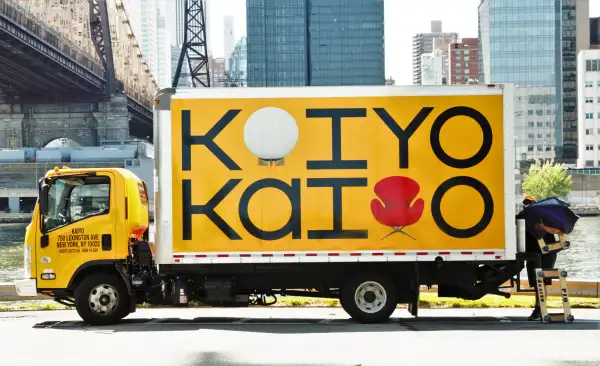This Start-Up Helps You Sell Unwanted Furniture in a Sustainable Way

When Alpay Koralturk and his wife Basak moved into a new New York City apartment in 2014, they wanted to do so sustainably — a task that turned out to be more difficult than expected.
“She and I are both quite passionate about the environment and sustainability, so we wanted to get [furniture] secondhand,” Koralturk said in an interview with Money. “Unfortunately, the experience was so frustrating, and the outcome was so disappointing, that I thought, ‘there just needs to be a better way of doing this.’”
At the time, there wasn’t — so Koralturk created one. The 33-year-old is the founder of Kaiyo, an online marketplace for buying and selling used furniture.
While websites that help apartment-dwellers sell their unwanted furniture have been around for decades — hello, Craigslist — Kaiyo goes about it differently. The company, which serves New York City, New Jersey, Connecticut and parts of New York State, acts as a middleman between buyers and sellers, picking up furniture from those eager to sell and making deliveries once a piece of furniture finds a buyer. The company handles photography and listings, and stores every piece of furniture in their North Bergen, N.J., warehouse.
The company's price-setting method is novel, too. While many online marketplaces let you set your own listing price, Kaiyo instead allows sellers to select their share of the sale price — with no knowledge of the item's eventual sale price. Those interested in selling furniture can register and fill out a submission form on Kaiyo.com with information about the item and the desired share of the sale price, which can be up to 40%. After Kaiyo decides to accept your furniture, the company evaluates your submission to determine its listing price. When a buyer purchases an item, the seller receives their share of the final sales price.
That money is a perk for those who want to get rid of their furniture, but not the driving motivation, Koralturk tells Money. “It's a nice kickback for them that they get to liquidate and get paid later down the line,” he says. “The primary concern is, in our experience, get this thing out for me, and please do the right thing with it, because it's a gorgeous piece and I've taken good care of it.”